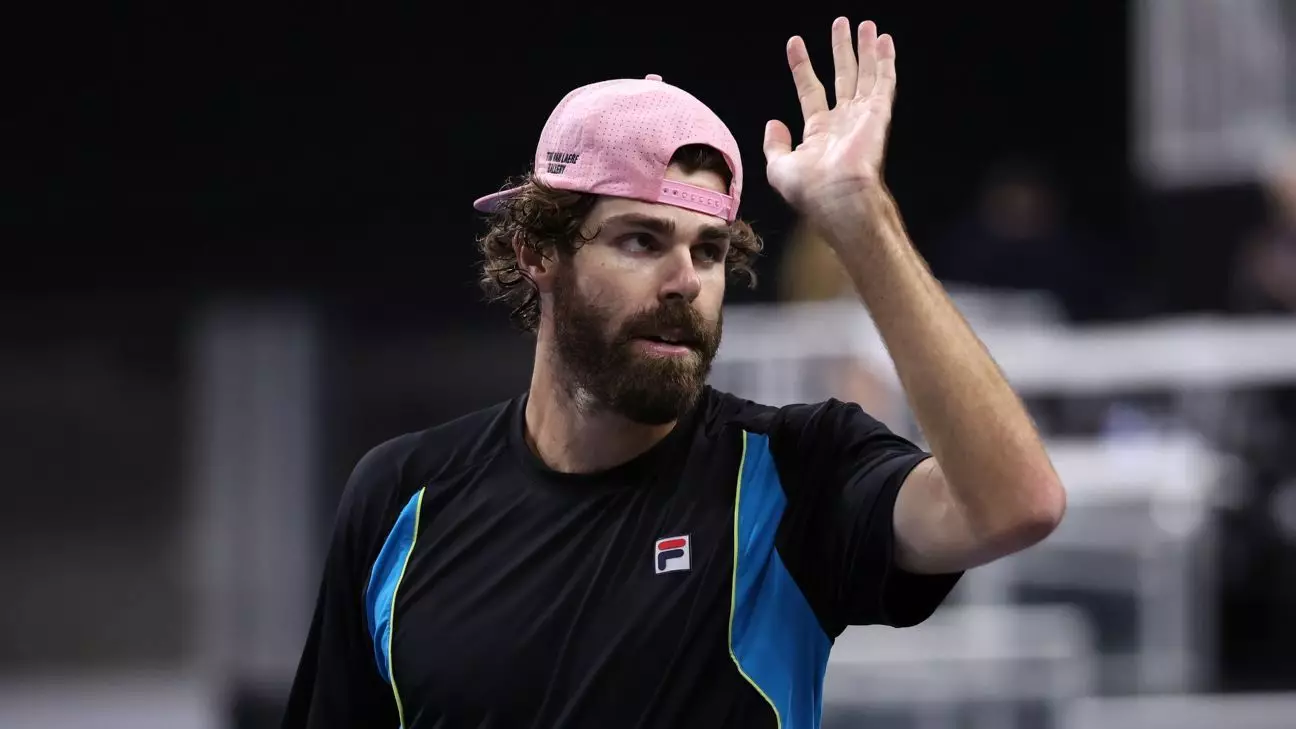The Dallas Open was charged with tension as Reilly Opelka took on Cameron Norrie in a crucial match. As Opelka was serving for the victory in the round of 16, a disruption caused by a spectator led to an incident that would ignite controversy and accusations of poor officiating. Spectators often add to the drama of tennis matches, but when an individual’s actions disrupt a player’s focus, it can lead to fiery confrontations, as seen in Opelka’s case.
Inciting Incident: Code Violation Explained
The turning point occurred when Opelka, visibly irritated, stopped mid-serve at a critical 30-30 score to confront a fan he believed was deliberately coughing to rattle him. Instead of keeping his cool, Opelka opted for a confrontational approach, asking the individual to leave while unleashing an expletive-filled tirade. The reaction was immediate; chair umpire Greg Allensworth issued a code violation, converting Opelka’s emotional outburst into a point penalty due to his audible obscenities.
The ATP rulebook stipulates a progressive punishment for code violations, which may seem strict but is designed to maintain order and sportsmanship in tense environments. Opelka’s argument with Allensworth raises questions about fairness and the role of umpires in moderating crowd behavior.
After securing a hard-fought victory against Norrie, Opelka didn’t hold back in his criticism of Allensworth. He condemned the umpire’s performance, asserting that Allensworth’s inability to manage the situation nearly altered the outcome of the match. Opelka’s frustrated remarks painted a picture of an umpire who allowed emotions to cloud his judgment instead of enforcing rules consistently and impartially.
Opelka expressed strong concerns, noting, “He should be on the sideline for about four weeks, maybe learn a thing or two.” Here, the dialogue shifted from defending player rights to questioning the integrity of officiating during competitive play. His comments, suggesting a two-way street regarding accountability, underscore the inherent challenges faced by officials in high-pressure scenarios.
In addition to his verbal assault on the umpire, Opelka faces significant repercussions in the form of a $5,000 fine for each violation incurred during the unsettling incident. This prompts an examination of the disparities in punishment provided to players versus umpires. Opelka rightly notes that while he faces financial penalties, the umpire encounters no consequences for his questionable judgment during the match.
As Opelka prepares for a subsequent match against the third seed, Tommy Paul, the lingering effects of this incident loom large. The notion of fair play must be balanced against an atmosphere fraught with tension, where spectators and players alike can become entangled in emotional reactions.
The tension between players and officials represents just one dimension of the broader reality in professional sports—maintaining order amidst chaos. Opelka’s experience at the Dallas Open encapsulates the headaches players endure due to the emotional intensity of competitive environments. As the ATP considers Opelka’s call for disciplinary action against Allensworth, it’s crucial to understand the importance of maintaining a respectful and fair gaming atmosphere, ensuring that neither players nor umpires are left feeling side-lined in the heat of competition.

